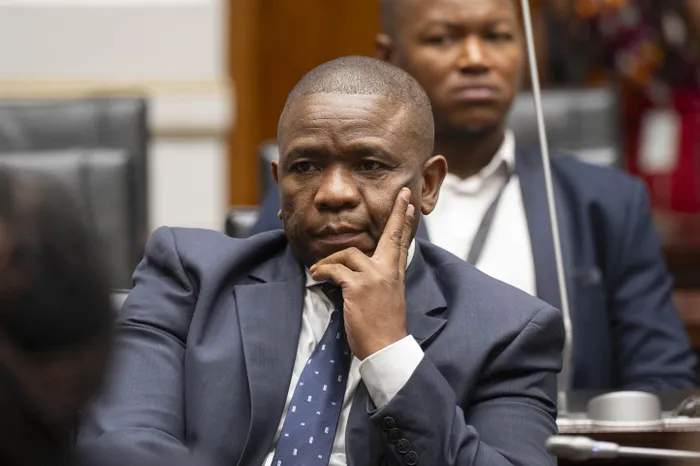Mkhwanazi says PKTT delivered ‘good results’ in fight against political killings

KZN police comissioner Lieutenant-General Mkhwanazi praises the PKTT’s results, even as he reveals chilling accounts of sabotage, court delays, and officers omitting evidence to protect high-profile suspects from prosecution.
Image: Photo: Armand Hough
KwaZulu-Natal Police Commissioner Lieutenant-General Nhlanhla Mkhwanazi has described the work of the Political Killings Task Team (PKTT) as “good work” that has produced results South Africans “could be proud of.”
Mkhwanazi told the committee that the team was created to address a spate of political killings and violence targeting leaders in the province.
He said the team’s effectiveness led to its involvement in other major investigations outside KwaZulu-Natal.
“The National Commissioner gave the assignment to the team to go and assist with the investigation of cases at the University of Fort Hare in the Eastern Cape,” said Mkhwanazi.
“There was also a request for the team to go and assist with the investigation of organised crime in Gauteng Province. I know of those three interventions that the team made outside KZN.”
The Divisional Commissioner who facilitated such deployments was General Dumisani Khumalo, who also served as the head of Crime Intelligence and the project leader of the PKTT, said Mkhwanazi.
Mkhwanazi confirmed that Khumalo held both roles simultaneously.
“We are given assignments in the South African Police Service because it's something we do all the time in our careers,” he said, explaining that it was not unusual for high-ranking officers to lead multiple projects concurrently.
Chief evidence leader Advocate Norman Arendse SC, questioned whether Khumalo’s dual role was feasible given the weight of his responsibilities. Mkhwanazi said: “That is correct, it’s a common trend across the SAPS.”
Mkhwanazi further confirmed that the PKTT's performance was regularly reported to the Inter-Ministerial Committee. “
We will always give presentations to the Inter-Ministerial Committee on a strategic level... It was more on a strategic level as an oversight body, not bordering them with regard to the details,” he said.
He acknowledged that while he was still in KZN, he personally provided these updates. After his transfer to Pretoria in 2019, “the briefings were handled by General Khumalo in the main.”
In a presentation summarised during the hearing and attached as part of his written submissions, Mkhwanazi outlined the team’s performance since inception.
“Since the establishment of this Political Killing Task Team in July 2018, the team has been investigating a total of 612 case dockets. These case dockets include murders, attempted murders, intimidation, conspiracy to commit murders, and other cases. A total of 436 suspects were arrested and charged,” Mkhwanazi said
He added that “156 firearms were recovered, of which 55 of them were linked directly with a ballistic bullet through a forensic testing to the political related cases.”
The team also made arrests within SAPS itself. “An additional 35 suspects who are members of the South African Police Service were arrested,” Mkhwanazi said.
“A notable one is the one who is now in prison who has been working with a parliamentarian who was involved in the murder of Sindiso Magaqa.”
Mkhwanazi said 128 accused persons were found guilty.
“29 accused were sentenced to life in prison. 40 accused were sentenced between 10 to 35 years. 25 accused were sentenced between 1 to 9 years. 23 accused were sentenced between 3 to 12 months,” he said
While the team’s work has been effective, Mkhwanazi acknowledged elsewhere that their efforts have not been without obstacles. Internal corruption, political interference, and deliberate court delays were all cited as serious challenges the team had to overcome.
When asked by Arendse whether he considered the continued existence of the PKTT justified, Mkhwanazi said, “Yes, that is correct. It still exists to date and we're quite happy with the fact that they still exist. Considering the fact that we are approaching elections, we wouldn't want that which used to happen in the past to start again.”
hope.ntanzi@iol.co.za
IOL Politics